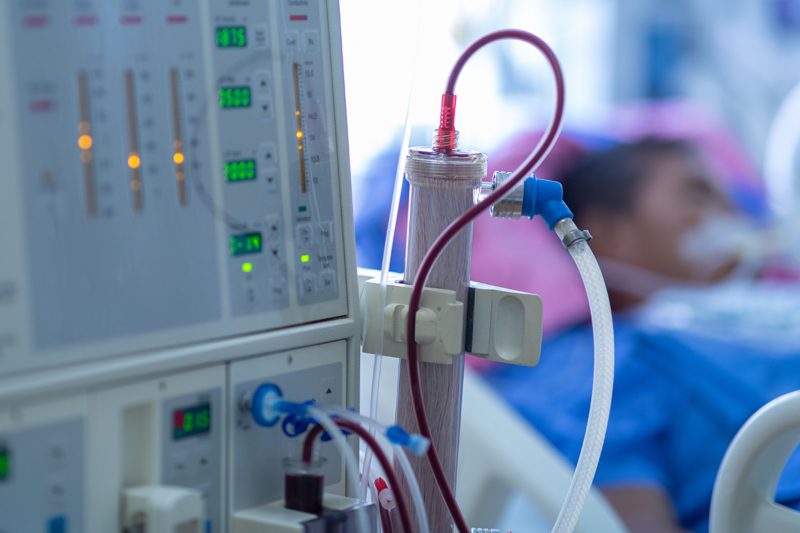
Schaeffer Clinical Fellow Eugene Lin finds dialysis facilities owned by nephrologists may provide better care. A second study evaluates the timing of dialysis and elective surgeries, finding days can make a big difference in post-surgery outcomes for patients. (Image Shutterstock)
In the U.S., dialysis is a costly treatment with poor health outcomes. According to the CDC, 15% of adults—37 million people—have chronic kidney disease. As the disease progresses to end-stage kidney disease, patients are required to receive dialysis regularly or have a kidney transplant. Although dialysis is lifesaving in the short-term, five-year mortality rates exceed 60%.
Eugene Lin, senior fellow at the USC Schaeffer Center for Health Policy & Economics and assistant professor of nephrology at the Keck School of Medicine of USC, is conducting research to improve the way we think about dialysis care and the outcomes for patients.
“Dialysis is unique because it is the only disease-qualifying condition for Medicare. Because it is a multibillion-dollar industry that impacts a disproportionate portion of Medicare spending, understanding the policies that affect the provision of dialysis and downstream outcomes is critical,” said Lin. (…Read More)